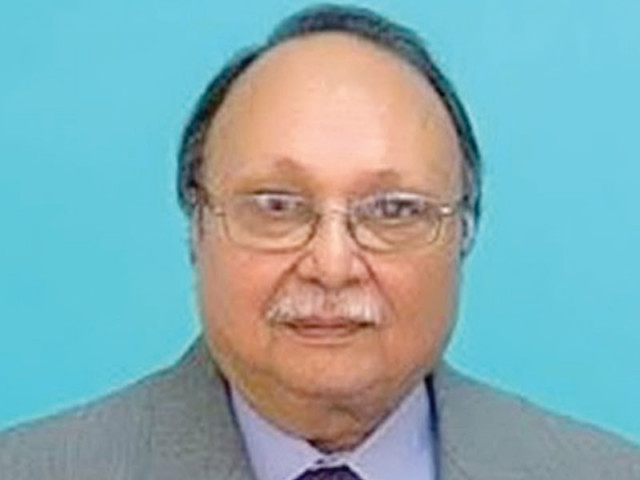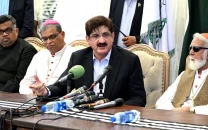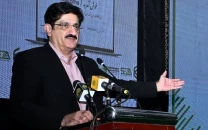Transitions: Shamimur Rahman, journalist who once interviewed Yasser Arafat by the headlight of cars, passes away at 71
The Daily Dawn reporter was known for his excellent contacts and document archives.

“Are you resigning because you were threatened,” asked his nearly disgusted news editor.
“No,” replied Rahman. “I am resigning because my version was not carried with the clarification.”
Indeed, for a journalist like Rahman, lovingly called Puppoo by his colleagues, there are many, many more stories that could be told. But sadly, he passed away on August 21 at the age of 71. He leaves behind a widow, three daughters and a son.
Rahman was born in Patna, Bihar, on July 4, 1941. Soon after doing his masters in International Relations from the University of Karachi, he joined Islamia College as a lecturer. His class fellows at university included Syed Muzaffar Husain Shah, Nasreen Jalil and many others who are now known faces in the field of politics, journalism and academia.
Perhaps the profession of teaching did not appeal to him as Rahman soon switched over to journalism in the late 1960s and joined Pakistan Press International as a political reporter.
He later became one of the founding members of the reporting team of The Sun, a newspaper that was launched under the editorship of Shamim Ahmad in the early 1970s.
Despite the financial crisis that dogged it in its later years, The Sun started out as a bold experiment in contextualizing news stories, punctuating headlines with slang and jargon and departing from the traditional layout. The newspaper produced quite a few reporters, including Rahman, who later made a name in the profession.
After The Sun, Rahman joined the financial daily, the Business Recorder, where he proved to be equally at ease with economic reporting. Despite its phenomenal growth, however, the newspaper industry in this country has generally failed to give working journalists a sense of security. It was probably with this thought that Rahman decided to join the Pakistan Television as a news producer. He stayed here for some 16 years and developed a taste for trade union activities as well.
After leaving PTV, Rahman joined the international wire service, Agence France Presse (AFP), as its bureau chief in Karachi. His last stint was with Daily Dawn where he worked as a senior political reporter especially covering the beats of Pakistan People’s Party and Muttahida Qaumi Movement. He was known as a reporter with excellent contacts in both parties, but also as one whose dispatches had the ability to annoy the political leadership on either side of the fence.
PPP leader Taj Haider remembers Rahman as progressive and a supporter of democracy but also a journalist who would go any length to gather news. “Shamim would even steal documents for the sake of news,” he said. “My diary went missing and he calls me later saying: iss mein tau kuch bhi zarori nahi hai (there is nothing worthwhile in it).”
Rahman had a chance to interview famous personalities, sometimes in unusual circumstances. Palestinian leader Yasser Arafat was at the Karachi airport and Rahman, then working for PTV, was sent to interview him.
“The lights of the camera didn’t work as the battery went dead. The interview then took place in the airport’s parking lot with the headlights of many cars turned on,” said Haider.
Few people perhaps know that Rahman had a habit of collecting documents. “That is what I am concerned about,” urged Haider. “Shamim’s wealth of archives is immense. Journalists should do something to preserve it.”
As information secretary of the PPP, Taj Haider used to send confidential morning notes to Benazir Bhutto who was in Dubai preparing for a political comeback. The notes also went to two journalists - Yusuf Khan and Shamimur Rahman.
Rahman did not just anger politicians, recalled Prof. Dr Moonis Ahmar of Karachi University’s International Relations department. “Shamim sahib used to report in his own way. Once he covered an event and skipped the entire speech of the vice chancellor. That made the university administration really angry.”
But despite his stature as a journalist and proximity to those in power, Rahman was never arrogant. “As PTV’s diplomatic correspondent, he had travelled the world but that man never boasted,” said journalist and colleague Habib Khan Ghauri. “Even as a senior, he talked to a junior with the same respect.”
Rahman compiled a book titled Thar Coal: Salvation Paradigm which is a collection of essays focusing on the power crisis in Pakistan.
Published in The Express Tribune, August 23rd, 2012.



















COMMENTS
Comments are moderated and generally will be posted if they are on-topic and not abusive.
For more information, please see our Comments FAQ